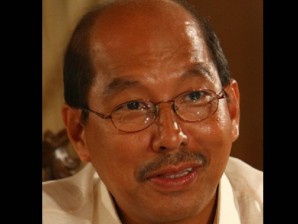There could be a “military pension crisis” in 2016 because payouts are eating heavily into the funds for those still in the active service, Budget Secretary Florencio B. Abad said Monday.
In a statement, Abad said the pension benefits of military personnel—under the Armed Forces of the Philippines and the Philippine Veterans Affairs Office—would total P67 billion by 2016.
He said that at the same time, projected personnel service requirements for active staff would amount to P63.7 billion.
The budget chief said the current pension system is “unsustainable” since the government shoulders the benefits paid to retired military personnel.
In particular, the military pension system is faced with a growing amount in unpaid pensions caused primarily by retirement benefits being pegged to the salaries of active personnel.
Abad said that based on projections, the pension requirements of military, police and other uniformed personnel was projected to grow to P111 billion in 2016 from the proposed budget of P52 billion for 2012.
He said the Department of Budget and Management was working with the Government Service Insurance System to conduct an actuarial study and come up with a system that would safeguard the contributions of members and institute a sound financial basis for computing deductions.
“We have to resolve this looming problem in the pensions of our uniformed personnel decisively at the soonest time possible,” the budget chief said.
“It is very likely that in the next five years, the government will allocate more funds for the pension requirements of retired military personnel than for the salaries of those still in active service,” he said.
Abad proposed that, while awaiting the results of the actuarial study, the government take several administrative remedies to address the looming pension crisis.
These include the AFP “desist(ing) from paying pension arrearages since no amount was appropriated for the purpose, the PVAO setting a prescriptive period on the receipt of applications and processing of claims of new veterans, and the review and updating of the list of pensioners to eliminate “ghost” pensioners.”
Abad explained that unlike other civil servants, military and uniformed personnel did not contribute premiums to a pension fund.
Also, soldiers and policemen retire at the age of 56, whereas civilian personnel begin to retire at age 65.
Originally posted: 6:55 pm | Monday, October 10th, 2011
